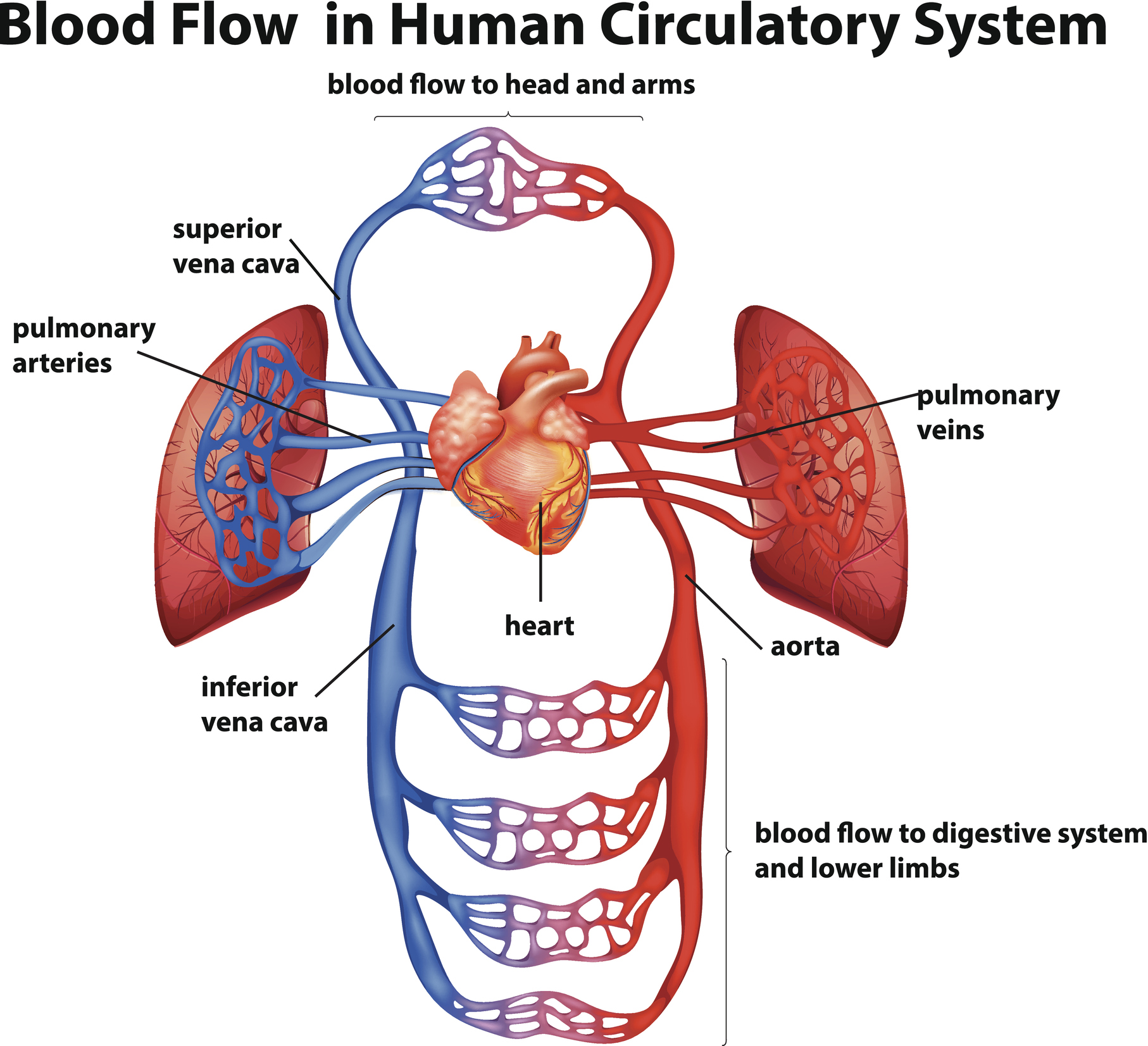Vitamins for Blood Circulation
by Nancy Hearn, CNC
Note: As an Amazon Associate I earn from qualifying purchases.
A few key vitamins for blood circulation include the B vitamins, as well as vitamins C, D, and E.
According to Prescription for Nutritional Healing, circulatory problems arise when oxygenated blood cannot flow freely throughout the body.
There are a number of underlying causes for poor circulation, most of which can be helped by getting good hydration, daily exercise, and proper nutrition.
These vitamins for blood circulation are best utilized in the body from fresh food sources. However, vitamin supplementation may be helpful, as needed, to correct nutrient deficiencies and to assist in healing the entire cardiovascular system.
Vitamin B Complex
The B vitamins work most effectively as a group and have a wide range of benefits for circulation. In particular, vitamin B3 (niacin) helps to lower cholesterol and thin the blood.
Vitamin B1 (thiamine) enhances circulation and brain function.
Vitamin B6 (pyridoxine) promotes red blood cell formation and aids in the prevention of arteriosclerosis.
Vitamin B12 (methylcobalamin) acts as an energy booster and prevents anemia.
Some of the best food sources of the B vitamins include brewer’s yeast, clams, eggs, chicken, herring, liver, sea food, beans, whole grains, sea vegetables and leafy green vegetables.
If you do not get enough of these foods in your diet, you might want to consider taking a vitamin B complex. If so, I highly recommend either a food-based B complex or a coenzymated B complex for better absorption.
Vitamin C
Vitamin C is a powerful antioxidant that can neutralize free radicals that cause arterial damage and contribute to cholesterol buildup.
Vitamin C is also effective for toning blood vessels, according to NaturalNews.com.
One study in the “Journal of Clinical Investigation” found that diabetics can boost circulation by taking between 250 mg and 500 mg of vitamin C a day.
Some of the best food sources of vitamin C include citrus berries, acerola cherries, citrus fruits, broccoli and leafy green vegetables.
The most effective vitamin C supplements are either food-based vitamin C or liposomal vitamin C for better absorption.
Vitamin D
Vitamin D is most essential for the utilization of calcium, which is necessary for normal blood viscosity.
The best way to get adequate vitamin D is by exposing one’s face, arms and legs to the sun at least three times a week for about 15 minutes.
Some rich food sources of vitamin D include salmon, halibut, eggs, cod liver oil, sardines, oatmeal and tuna.
The dosage of vitamin D depends on your health condition and blood levels. The daily recommended dosage is 1,000-2,000 IU of vitamin D3. However, if you get tested and are deficient, your health practitioner may recommend a higher dosage.
Vitamin E
Vitamin E is effective for improving blood vessel tone. As an antioxidant, vitamin E prevents cell damage by inhibiting the oxidation of fats and the formation of free radicals.
Good food sources include nuts, seeds, cold-pressed olive oil, beans, brown rice, dark leafy green vegetables and whole grains.
A daily recommended dosage of vitamin E is 400 mg. However, some researchers have found that 600 IU of vitamin E daily led to significant improvements in blood-vessel tone.
Other Key Vitamin Supplements
A few other important supplements for blood circulation include garlic, L-arginine, and alpha lipoic acid.
Garlic is rich in antioxidants and increases nitric oxide production. Nitric oxide is critical for cardiovascular health as it increases endothelial flexibility.
L-arginine is an amino acid which is the precursor to nitric oxide. Taking 2,000 mg daily can help with overall blood circulation and is also used as a treatment for erectile dysfunction.
Alpha lipoic acid is another antioxidant that improves endothelial function and also helps alleviate symptoms related to diabetic nerve function.
References
Prescription for Nutritional Healing; Phyllis A. Balch, CNC; 2000.
NaturalNews.com: How to Tone Your Blood Vessels and Reduce Your Risk of Heart Disease
Further reading . . .
Foods for Circulation of the Blood
Return from Vitamins for Blood Circulation to Water Nutrition
If you would like to reproduce or republish this article or any other article on this site, feel free to do so but please include a reference or link to the article at WaterBenefitsHealth.com.
Sign Up for Our Monthly
Newsletter
Visitor Comments
"This was the best and most straight forward info on the net yet. I asked a question and got an answer that made sense. Thank you so much!" - Linderlinder
FINALLY!!! I have been wondering about this for years with no 'solid' answer. This is exactly what I've been wanting to know! Thank you for this share..." by Andy
"Thank you for the information, Nancy. I appreciate it. Your article and findings are very helpful, referring to dehydration." - Carolyn
"Lemon water is one drink both my wife and I can't drink. It upsets our stomachs. We are in our sixties and in very good health—well, better health now that we drink about 2 liters plus of water each day. It has made so much difference to our digestive systems and recovery every day. Thank you for your website and effort." - Rod



